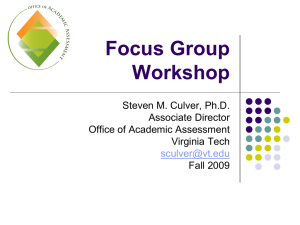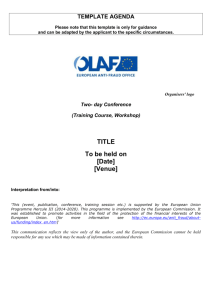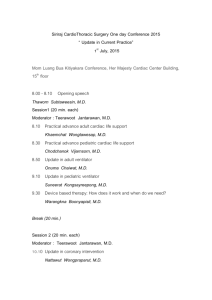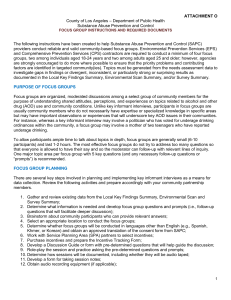Note-taking
advertisement
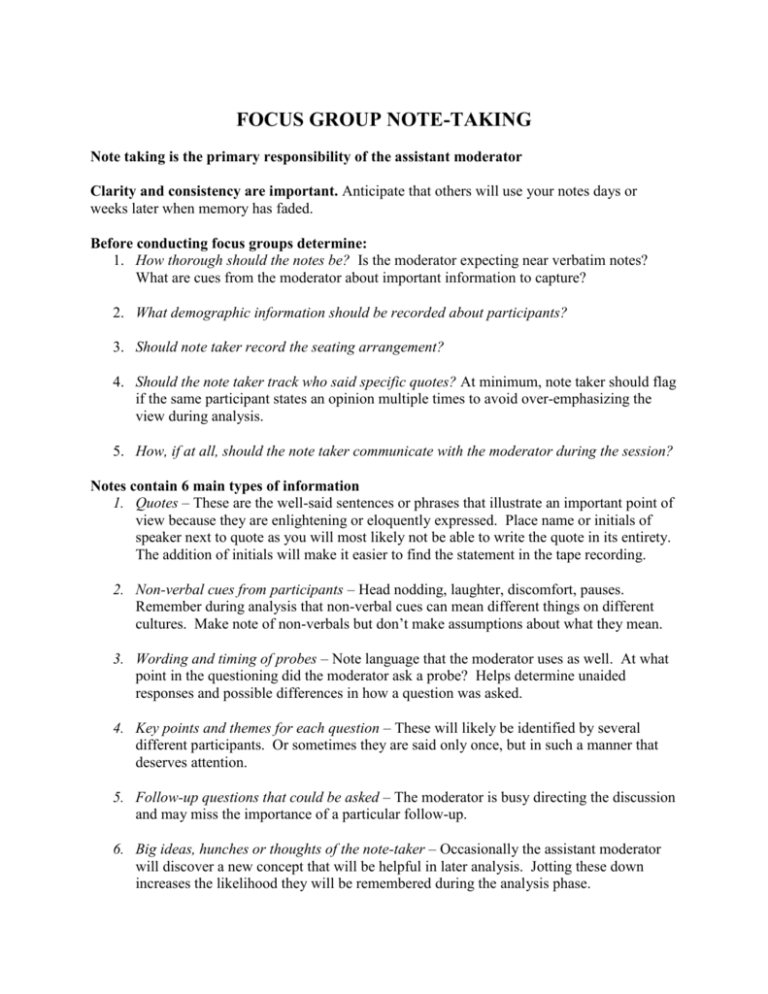
FOCUS GROUP NOTE-TAKING Note taking is the primary responsibility of the assistant moderator Clarity and consistency are important. Anticipate that others will use your notes days or weeks later when memory has faded. Before conducting focus groups determine: 1. How thorough should the notes be? Is the moderator expecting near verbatim notes? What are cues from the moderator about important information to capture? 2. What demographic information should be recorded about participants? 3. Should note taker record the seating arrangement? 4. Should the note taker track who said specific quotes? At minimum, note taker should flag if the same participant states an opinion multiple times to avoid over-emphasizing the view during analysis. 5. How, if at all, should the note taker communicate with the moderator during the session? Notes contain 6 main types of information 1. Quotes – These are the well-said sentences or phrases that illustrate an important point of view because they are enlightening or eloquently expressed. Place name or initials of speaker next to quote as you will most likely not be able to write the quote in its entirety. The addition of initials will make it easier to find the statement in the tape recording. 2. Non-verbal cues from participants – Head nodding, laughter, discomfort, pauses. Remember during analysis that non-verbal cues can mean different things on different cultures. Make note of non-verbals but don’t make assumptions about what they mean. 3. Wording and timing of probes – Note language that the moderator uses as well. At what point in the questioning did the moderator ask a probe? Helps determine unaided responses and possible differences in how a question was asked. 4. Key points and themes for each question – These will likely be identified by several different participants. Or sometimes they are said only once, but in such a manner that deserves attention. 5. Follow-up questions that could be asked – The moderator is busy directing the discussion and may miss the importance of a particular follow-up. 6. Big ideas, hunches or thoughts of the note-taker – Occasionally the assistant moderator will discover a new concept that will be helpful in later analysis. Jotting these down increases the likelihood they will be remembered during the analysis phase. FOCUS GROUP NOTE-TAKING SUMMARY Date of Focus Group Location of Focus Group Number of Participants Category of Group Moderator Name Asst. Moderator Name April 17, 2006 Early Childhood Center – Ely, MN 14 total – 6 men, 8 women, all Caucasian Parents of preschoolers Melissa Smith Jaime Jones Responses to Questions Q1. What was the problem and how did you get your answer? Brief Summary/Key Points Notable Quotes Q2. What do you consider when deciding where to go for help? Brief Summary/Key Points Notable Quotes

